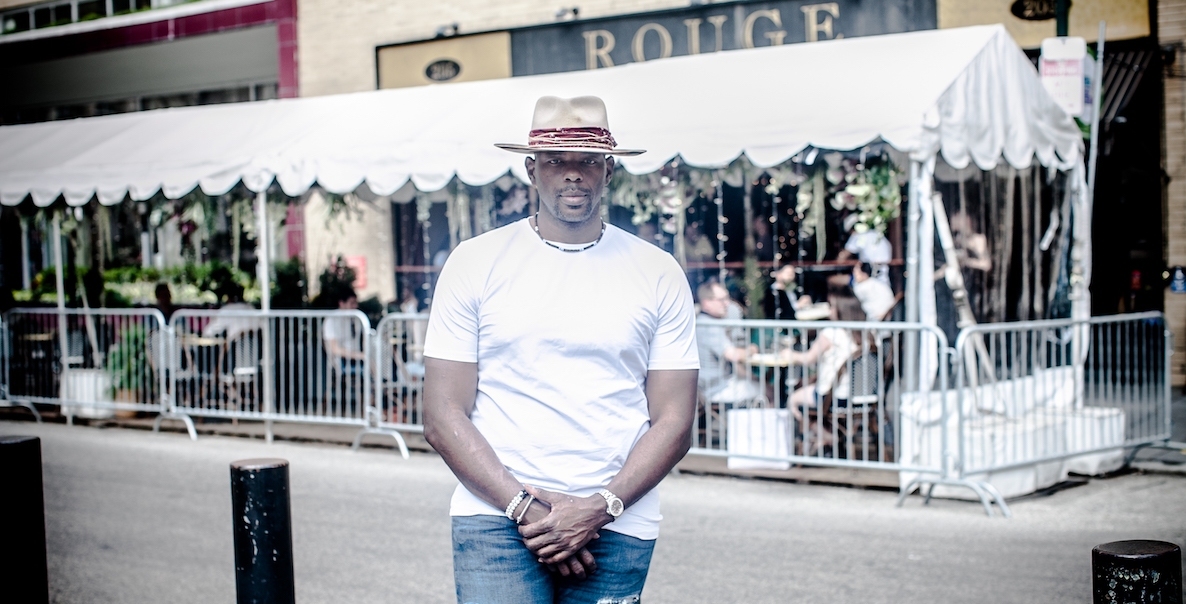Marc Jackson and I go way back to when I was manager of the West Philly Speedboys (West Philadelphia High School’s basketball team), back when kids played in summer leagues, something kids don’t know about anymore. Joe Newtown and Devon Baker, Al Horn played against him in Susequehanna and Parkside playgrounds.
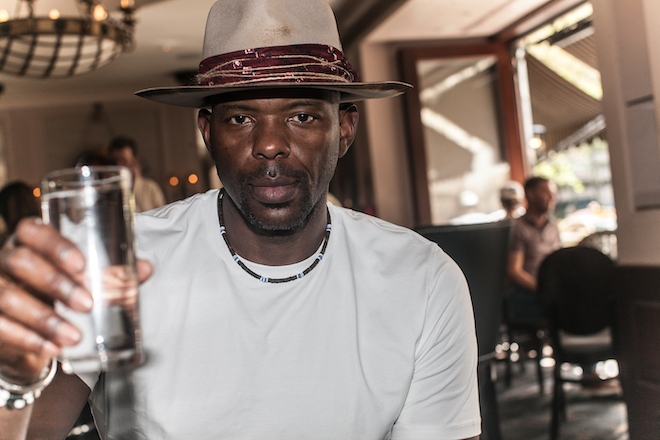
Jackson went on to play for Temple and the NBA, and is now the 76ers TV analyst — which has kept us in the same circles. He has a beautiful approach to life, family, fitness, fashion and the world.
He and I met up at Rouge to chop it up. We talked about his past, present and future.
Coming up in North Philly
Jackson and I started out on those summer leagues, which “kept you out of trouble and helped progress you, basketball-wise, but also made you make friends,” he says. I’d sell my water ice and cakes during those games.
“Philly is a big city, but it’s a small city: If you got any kind of basketball game, you are known; everybody knows of you,” says Jackson. Playing like he did, connecting like he did, he made lifetime bonds.
Like me, Jackson was Philly without succumbing to the streets.
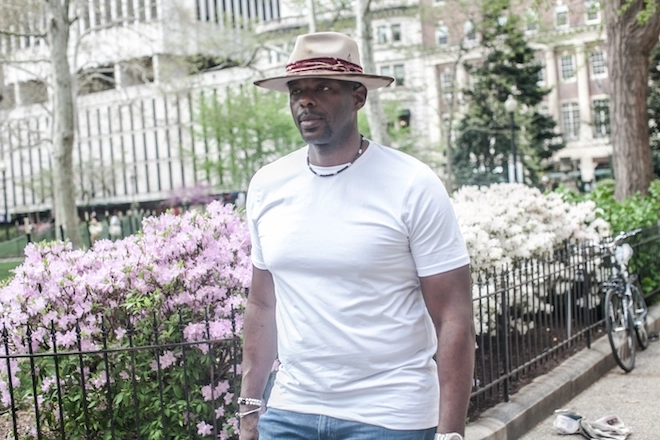
“I was always a different kind of cat, never rolled too deep with a lot of people, never hung out. I was raised by my grandmother primarily. So she made sure I stayed out of trouble,” he says.
After high school, he wanted to get as far from North Philly as possible. His coaches told him the University of Hawaii was too far, so he went to Virginia Commonwealth University. After his first year, his mother was in and out of rehab and the hospital. She also had his little brother. So, he came back home and enrolled at Temple, where he could play ball while helping to raise his brother and take care of his mom. It wasn’t easy.
Temple basketball coach Chaney couldn’t and wouldn’t help him with money. “John Chaney didn’t break rules,” he says. Jackson’s best option for taking care of his family was to go pro, and “worked his butt off” in the weightroom and on the court. In the end, the transition from VCU to Temple “ended up being a beautiful thing,” he says.
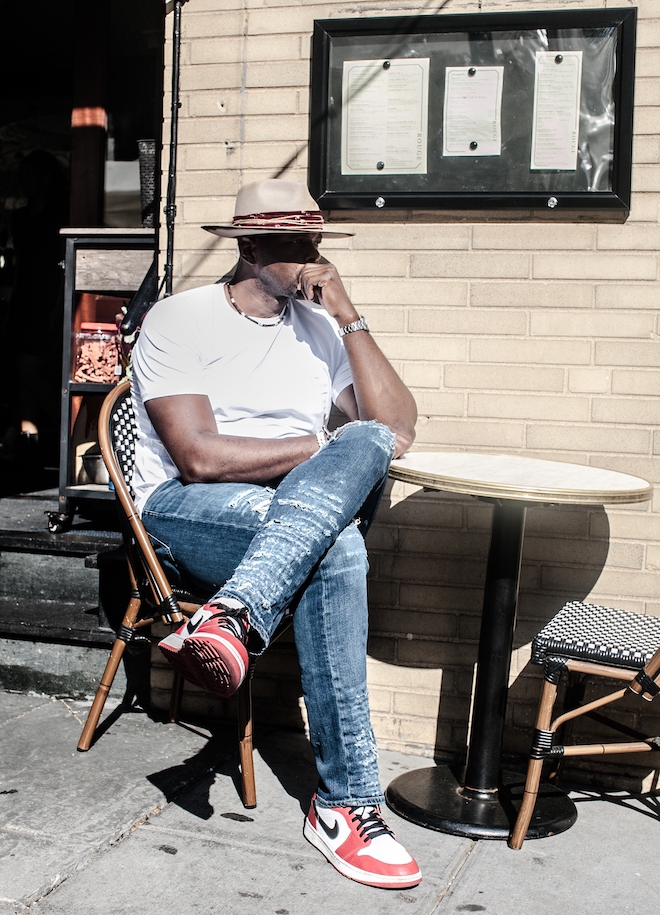
Going pro
In 1997, he entered the NBA draft and was picked 37th overall. But there was more money abroad, so he went to play ball in Turkey and Spain for a few years. Then he came back to the States to play in San Francisco, Minnesota, Philly. Even though he once tried to leave, playing in his hometown meant the most to him.
“I know so many players that’s from Philadelphia and got a chance to play for the 76ers, and did not like it,” he says. The fans. Being “touchable by so many people.” The pressure was too much.
“For me, it was an honor. I remember watching the 76ers on a small black and white television growing up. I remember listening to them on the radio. For me, being from the inner city of Philadelphia, it wasn’t like it was a dream come true: It was like I had conquered my dream. I manifested,” he says.
“Every game I put on a Philadelphia uniform, I would get emotional. A.I. would tell you that. Aaron McKie would tell you that.”
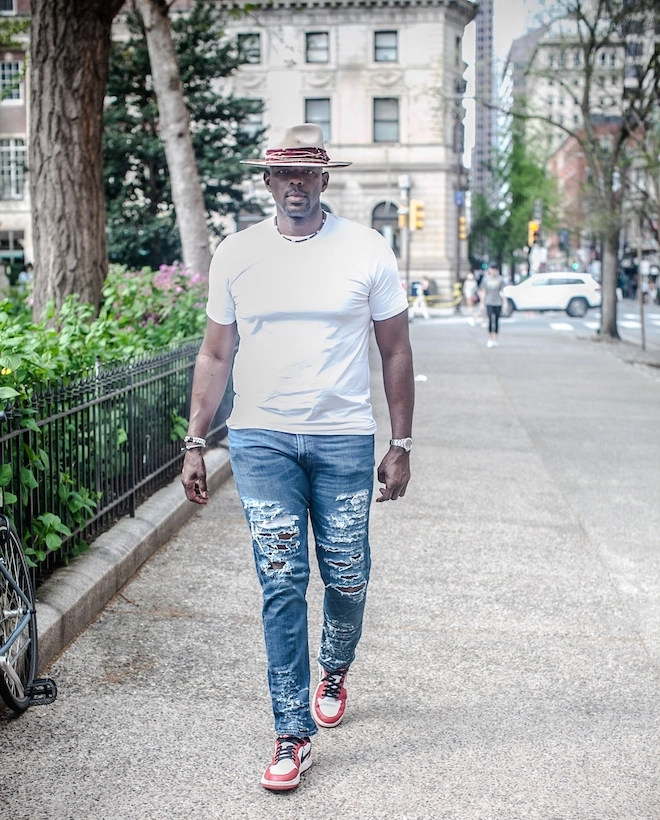
Life after the NBA
Michael Jordan always said of his retirement, “I wanna know what a beer gut is.” Jackson listened to Larry Bird.
“Bird made a statement when he was general manager of the Indiana Pacers that you don’t see a lot of 6’8” people living past 60. That really hit hard,” Jackson says. Even today, he works hard to stay as fit as possible. “When I go to the gym, I understand: I am my number one priority. If I’m good, everyone that falls under my umbrella is good.” Jackson is getting himself ready to be a playpal for his grandchildren one day, so he can pick them up and ride them on his back.
His trainer is Lieutenant Keneth Legions, a former Marine and firefighter. “Coach” is 67 years old and in playing shape, “chiseled like from the Greek mountains,” Jackson says. “When I go to the gym, I train harder than ever before because I understand I’m competing against life. We cannot beat father time, but we can beat how we were the day before.”
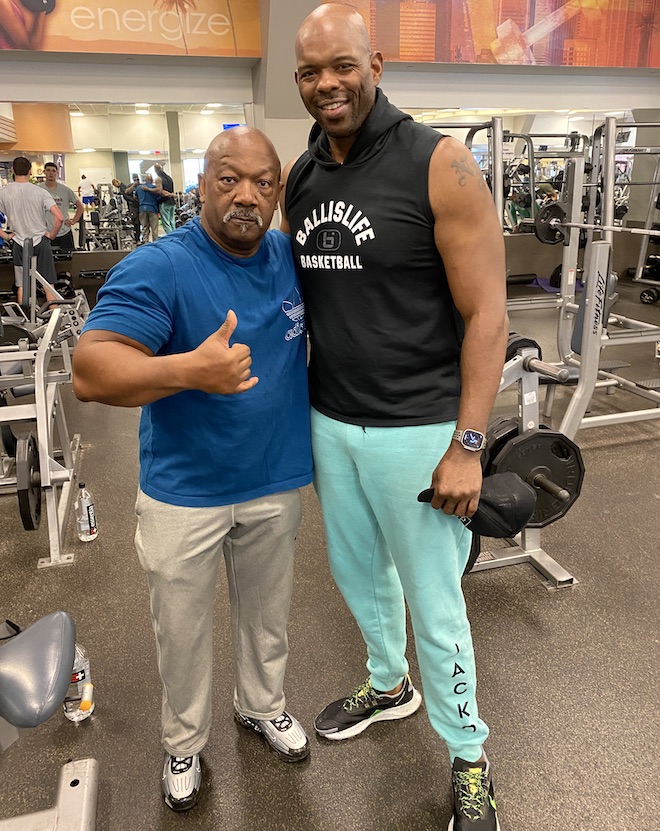
He brings the same mindset to his worldview, always expanding, always keeping it fresh. “I always made myself available to people I did not know,” he says. That’s why after the NBA, he went back to Europe to play. That’s why he embraced the offer to work for Comcast, now NBC Universal, why you’ll see him in the front row at Philly Fashion Week and, next season, at NY Fashion Week. And that’s why he feels like it’s important to be in Philly and see beyond Philly.
“When I was poor. When I had no heat, no running water, I would save up money to get food from the corner store,” he says, Now, “when I go to different parts of Africa, different parts of Asia,” he sees a new level of poverty. “A lot of people, we think we’re poor; we think we’re living under the means. But you go see other people in other countries, and it will humble you. You will think you’re living like a king or a queen. That’s one of the ways I look at life.”
West Philly born and raised with a slosh of Brooklyn, New York in between, Big Rube partnered with Mitchell & Ness in 2000 to help make it a global brand marketing and selling high-end vintage jerseys. He has been photographing Philly since 2009, including in a Daily News Column from 2011 to 2017. He’s also a chef, operating Chef Big Rube’s Kitchen seven days a week at Pitcher’s Pub in Manayunk, selling the best handmade food in a Main Street dive bar.
![]() MORE FROM BIG RUBE’S PHILLY
MORE FROM BIG RUBE’S PHILLY



